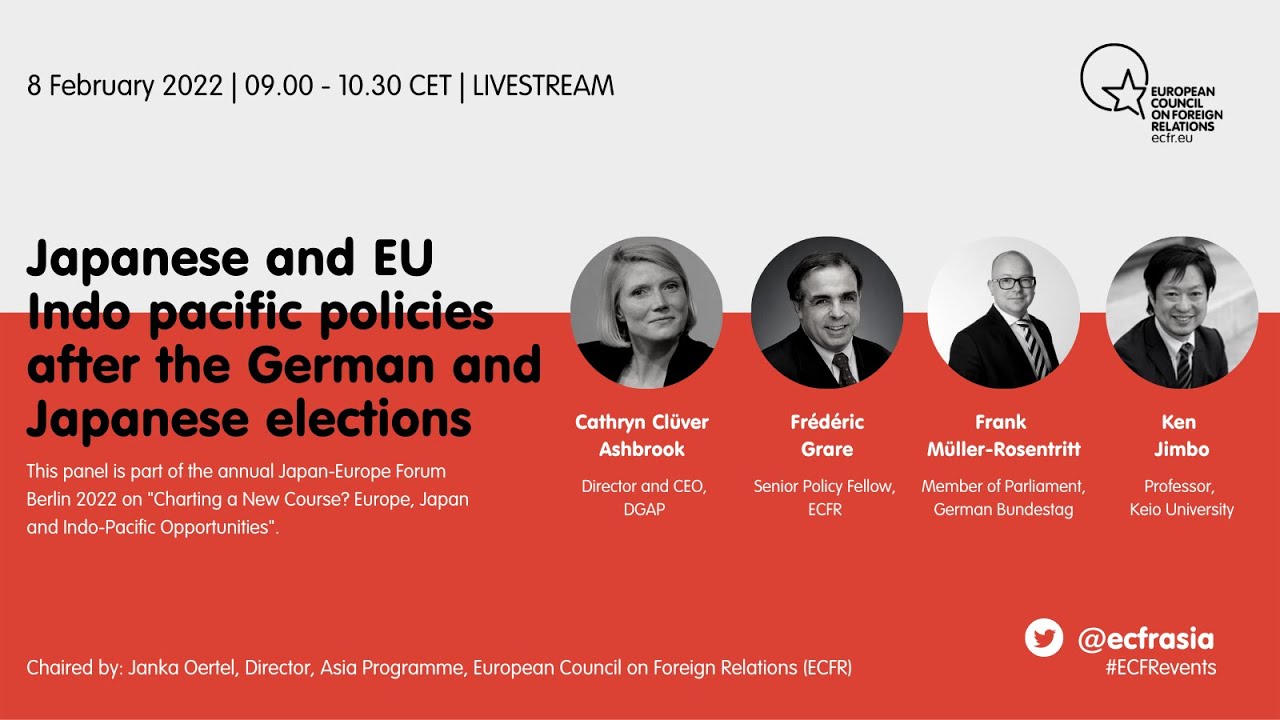Japanese and EU Indo-Pacific policies after the German and Japanese elections
How will the new administrations in Germany and Japan impact the EU’s and Japanese Indo-Pacific strategy and China policy?
Guests
Didi Kirsten Tatlow, Senior Fellow Asia Program, German Council on Foreign Relations (DGAP)
Frederic Grare, Senior Fellow, Asia Programme, European Council on Foreign Relations (ECFR)
Ken Jimbo, Professor, Faculty of Policy Management, Keio University, Japan
Frank Müller-Rosentritt, Member of Parliament, German Bundestag
Chaired by
Janka Oertel, Director, Asia Programme, European Council on Foreign Relations (ECFR)
Germany under the leadership of Angela Merkel has been one of the main power centres in Europe and the world. At the same time, Japan under the Premiership of Shinzo Abe and followed by Prime Minister Yoshihide Suga managed to distinguish the country globally with its Free and Open Indo Pacific Strategy and its fight for a multilateral and rules-based order. After the federal election in Germany in September 2021 and Japan’s Lower House elections in November 2021, the new administrations will be faced with high expectations regarding the nature of their foreign policies, alliance buildings and their takes on their Indo Pacific Policies. How will the new administrations impact the EU’s and Japanese Indo-Pacific strategy and China policy? What will this mean for key allies such as the US? Will the new ad-ministrations continue to embrace their policies in new security domains such as cybersecurity, emerging technologies, climate change and green technologies?
This panel is part of the annual Japan-Europe Forum Berlin 2022 on “Charting a New Course? Europe, Japan and Indo-Pacific Opportunities”.

